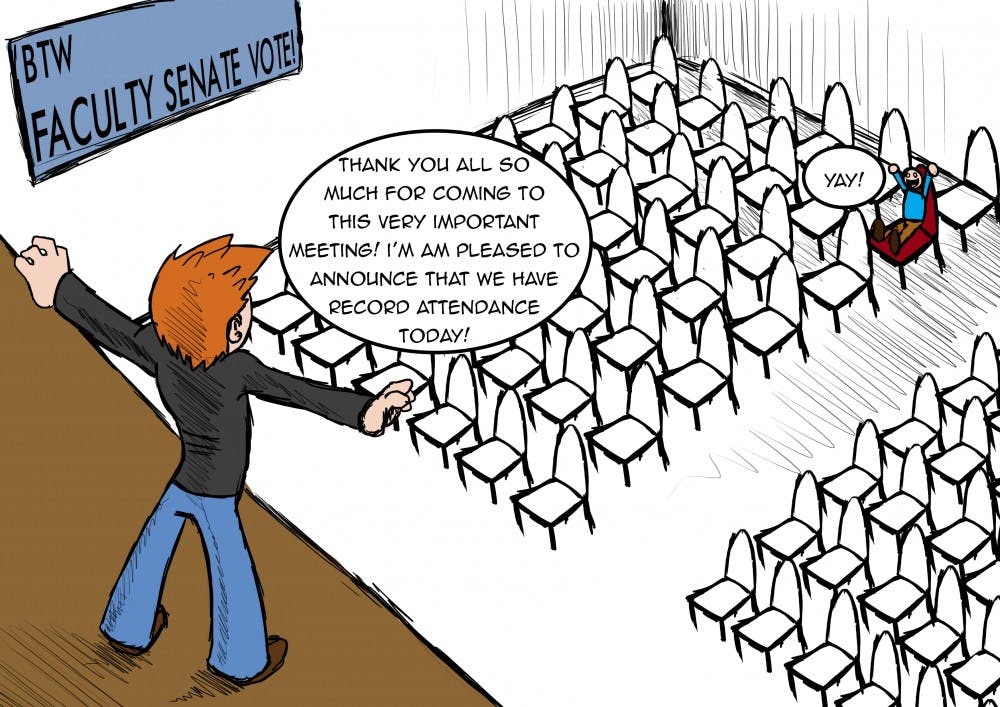From the Student Association to the Faculty Senate, UB has a serious problem with attendance – and apathy.
On Wednesday, the SA Assembly held a town hall meeting to discuss SUNY’s “rational tuition plan,” which regulates tuition increases. Under the plan, UB’s tuition will increase by $300 a year.
The cost of tuition and its unavoidable is an issue that affects nearly all of the student population. Yet only about a dozen students showed up to discuss the new policy – which the SA Assembly endorsed in late in February.
UB students can no longer justifiably complain about tuition costs if they can’t take the time to voice their opinions in a space dedicated specifically to student feedback.
It’s understandable that attending this meeting couldn’t have been possible for many students, with classes, jobs and other commitments, but surely more than 15 students on campus had enough free time to show up.
In this case, UB students are fortunate the right decision was made without them – the rational tuition plan is deserving of support. Although an increase in tuition may not sound worthy of celebration, it is laudable the increase will be limited, controlled by SUNY and predictable.
Students will be able to plan accordingly in response to the tuition increase, thanks to the advanced notification of the rise in cost, and feel secure knowing that prices can’t go up dramatically.
SA was right to endorse this plan, even if it had minimal input from students.
The meeting’s sparse attendance also indicates that SA needs to do a better job promoting such events. The meeting was not announced or shared on the organization’s Facebook page until the Monday preceding the event, which certainly made it more difficult for students to plan on attending.
With students’ busy schedules, it’s important to offer advance notice of such events, even if the details aren’t ironed out – the announcement was delayed in this case because of late confirmation about the location. At the very least, students should know early on that a meeting is going to occur.
To encourage students to attend, the first step is getting them to take notice that important issues are going to be discussed. Even without the logistical details in place, the issue of a tuition increase should have been brought to the attention of the student body.
Even with improved communication, attendance will likely continue to be an issue, and SA should develop a more creative response to the problem.
Allowing students to offer feedback remotely, or voice their opinions via an online platform would improve student participation and help commuters and off-campus residents be more involved in the decision-making process.
These sorts of opportunities are available to SA and they should take advantage of them. After all, other organizations must meet in-person and for groups like the Faculty Senate, this seems to be an unassailable obstacle.
Like the SA Assembly meeting, last Tuesday’s Senate meeting was sparsely attended, with only 35 members attending to discuss a new decanal review process.
And critically, 45 members are required to approve policies, so the Senate could not approve the policy.
It’s important that faculty, just like students, exert their influence on university policy so individuals can have a say in decisions that affect them. And yet, even as professors dock grades for students’ absences, many fail to show up at their own meetings.
Both students and faculty members are fortunate to have the opportunity to voice their opinions and exert some influence on university policy – that opportunity is meaningless if no one shows up to take advantage of it.
email: editorial@ubspectrum.com





